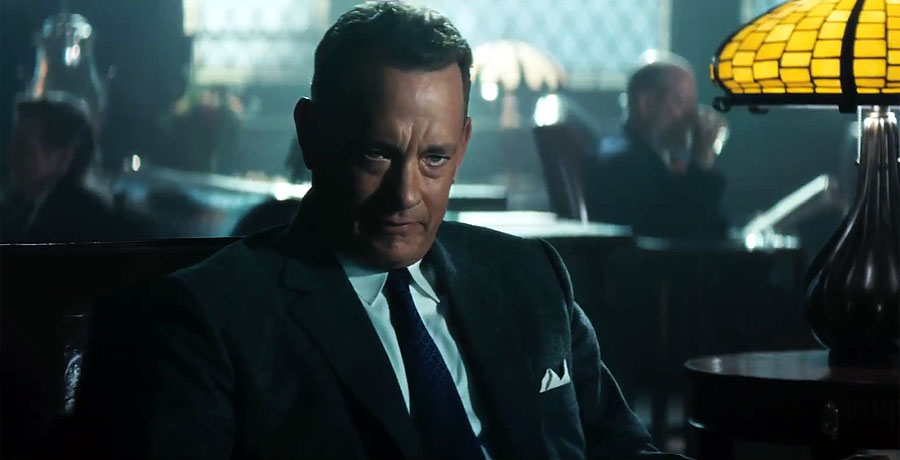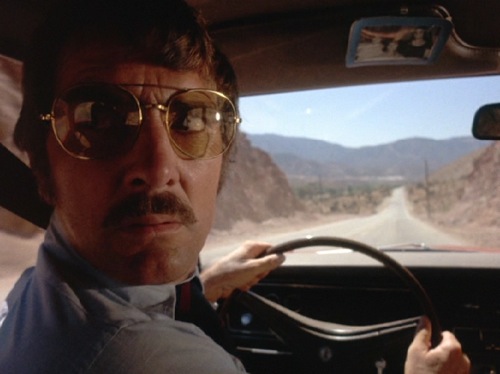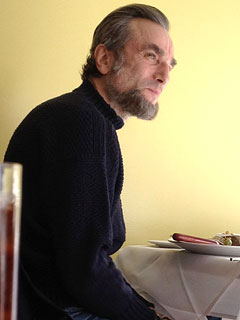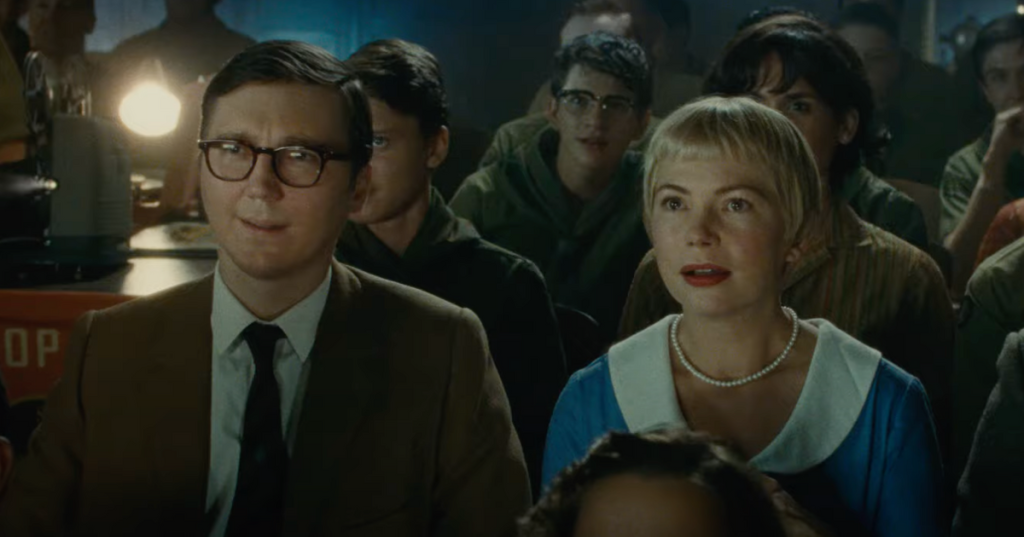
In his cinematic memoir The Fabelmans, that great storyteller Steven Spielberg relates two braided narratives – one about the origins of his own dedication to filmmaking and a second about his parents, two people who loved each other but could not be happily married. Both parents were creatives in their way. His dad (Paul Dano) was an electronic engineer in the transistor age who could imagine modern computing. His mom (Michelle Williams) was an aesthete, a pianist-turned-house mom whose exuberance often manifested in song, dance and visual arts. And, importantly, both parents were dreamers who would come to understand their son’s passion.
The story’s stand-in for Spielberg is Sammy Fabelman (Gabriel LaBelle). We watch as his parents drag him to his first movie. That first film, incidentally, was The Greatest Show on Earth, always in the conversation as the worst movie ever to win the Best Picture Oscar. Nevertheless, it contains a thrilling rain wreck sequence, which definitely left its mark on the young Spielberg. You can draw a line from the train wreck scene in The Greatest Show on Earth and the very young Sammy’s home movie version with a Lionel model train to the final scene in Spielberg’s first real-life feature, the TV movie Duel.
Young Sammy starts making his own home movies, and after the family moves to Arizona, starts enlisting his sisters and his friends in increasingly sophisticated amateur film productions, including a WWII movie with an robust combat finale.
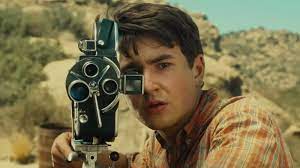
When the dad gets a job at IBM in San Jose, it’s one too many moves for mom. She misses a friendship that made her husband’s absences bearable, she decompensates and the differences between the two simmer and finally boil over.
The kids aren’t happy in what will become Silicon Valley either. Sammy and his sisters attend Saratoga High, which is thinly disguised as “Grand View High”, and Sammy suffers antisemitic bullying (and I have read about Spielberg’s bitterness at his experience there). Indeed, Saratoga High in The Fabelmans looks like a camp for Hitler Youth.
Although high school is hellacious and his parents split, Sammy survives to try to break into the film industry. Each parent is able to provide support in his or her own way, and Sammy gets some valuable advice from other adults along the way, including one very famous one.
Gabriel LaBelle, who looks like the teenage Spielberg and who is much shorter than the Aryans at Saratoga High, is completely believable as Sammy. While his performance as this specific character is more than adequate, I’m really not hoping to see him as Mercutio or Holden Caulfield or Billy the Kid. And, as befits the title, The Fabelmans is at least as much about the parents’ impact on Sammy as it is about his own actions and inner life.
How many times can you call an actor’s performance a “revelation”? That’s the challenge in describing what will be another Oscar-nominated turn by Michele Williams. The Fabelman family really revolves around the mom – for better when she is the glue that holds the family together through its moves across the US. And for worse, when she experiences moments of instability and then breaks down completely. Williams’ performance (as always) brings texture and subtlety, along with the strong emotions of joy and despair. There’s a moment when the dad, experiencing unrestrained joy, carries her over the threshold of a new house, one that she has been yearning for; she smiles appropriately for the moment, and then the expression in her eyes slightly changes to hint that things cannot be made right, after all. It’s a singular Michelle Williams moment.
Paul Dano excels as the Fabelman Dad, who is trying so damn hard within the confines of 1950s gender roles, but is often confounded by his wife and his own children.
The rest of the cast is good, too, including Seth Rogen, unrecognizable but for his voice. Julia Butters (who stole a scene from Leonardo DiCaprio in Once Upon a Time..In Hollywood) and Keely Karsten are really excellent as Sammy’s sisters. Judd Hirsch, who is now 87, has a hilarious cameo as the mom’s long-unseen grand uncle, who parachutes in with what amounts to a bizarre pep talk for Sammy. Another great filmmaker, David Lynch, has a priceless and gut-bustingly funny and dead-on cameo at the end as an even more famous filmmaker; Lynch and Spielberg must have been howling with laughter between takes.
Personal digression: The protagonist’s first movie – and the rest of the film – made me think about whether there was one moment in my life that steered me toward my own day-job career in law and politics – certainly there was a zeitgeist of the times in the 1960s, but I ‘ll have to reflect more to come up with a single catalytic moment. For my love of movies, however, there’s a clear spark – seeing movies like Casablanca, Double Indemnity, All About Eve, Strangers on a Train, The Man Who Shot Liberty Valance, The Rules of the Game and 8 1/2 for my sophomore History of Film class at Stanford, along with The Godfather, Chinatown, Five Easy Pieces, The Last Picture Show, American Grafitti and other, then contemporary, work by the New Directors in the early 1970s; imagine seeing those 12 movies for the first time within a couple years.
I’ll be adding The Fabelmans to my Best Movies of 2022. It’s peeked out in a few theaters, and I expect a much wider theatrical release after Oscar nominations are announced in late January.


